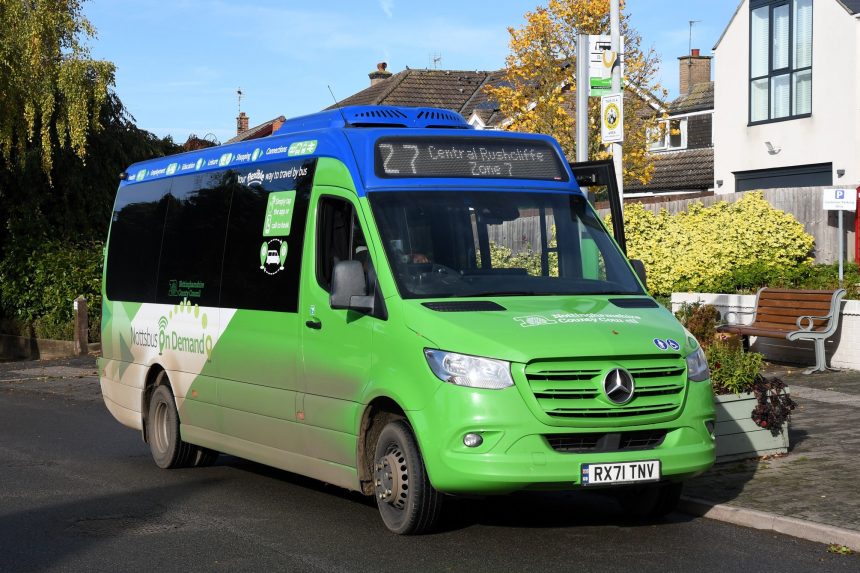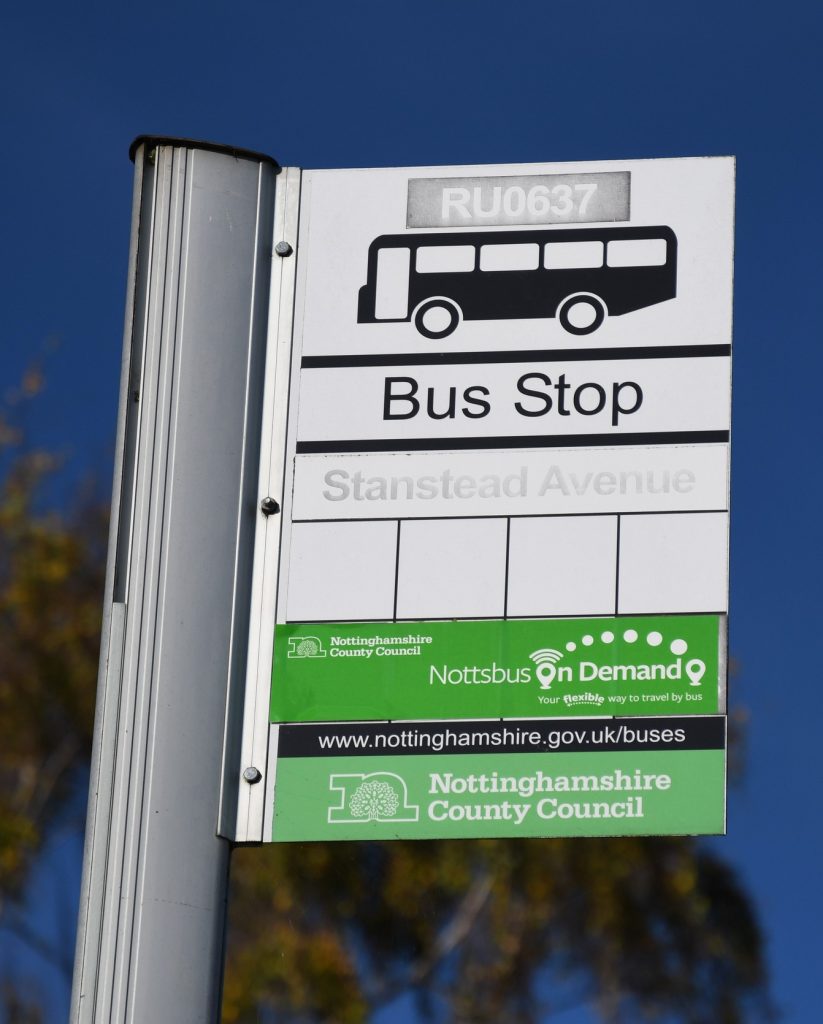In May 2023, routeone reported on the impending launch of Nottinghamshire County Council’s fourth DRT zonal scheme. Now, just 18 months later, seven zones are in operation. With a political will to generate growth, a reallocation of resources is helping deliver success
Roy has worked for Nottinghamshire County Council (NCC) for some 20 years, latterly as a driver on the council’s Nottsbus Connect network of scheduled services, and now as a driver of one of NCC’s fleet of Mercedes-Benz Sprinter buses operating on the Nottsbus On Demand (NOD) DRT network.
Except that he doesn’t see himself as a driver.
“This job is all about customer service,” he explains, as I travel with him as we pick up passengers in the new Central Rushcliffe zone that started operating in July this year.
“The personal interaction with our customers is very important. I’m not sure that most ‘bus drivers’ could do this job!”
Over the couple of hours or so that I spend with Roy, that all-important customer service comes to the fore, as he interacts with what are clearly regular passengers, whilst welcoming first-time users. It’s good to see.
It’s something that Pete Mathieson, NCC’s Manager, Transport and Travel Services, agrees with when I meet with him later at NCC’s offices at County Hall in West Bridgford.
“Our DRT scheme wouldn’t be what it is without our driving team,” he says. “As you’ve heard, it’s the personal service that is part of why DRT is successful.”
NOD launched in August 2022 with three zones: North Ollerton, South Ollerton, and an innovative Thursday to Saturday evening zone in Mansfield.
“We’d been successful in obtaining funding from DfT’s Rural Mobility Fund,” explains Pete. “In May 2023 we introduced a West Rushcliffe zone in the south of the county, followed, in April this year by a South Newark zone. In July this year we introduced a new Central Rushcliffe zone, a new evening zone in Newark, and increased the operating period in Mansfield to six evenings a week. The initial four schemes were modelled with a projected passenger total of 90,000 a year. That figure actually came in at around 100,000 for the first full year. For the year to May 2024, the figure across all seven zones was 111,000.”
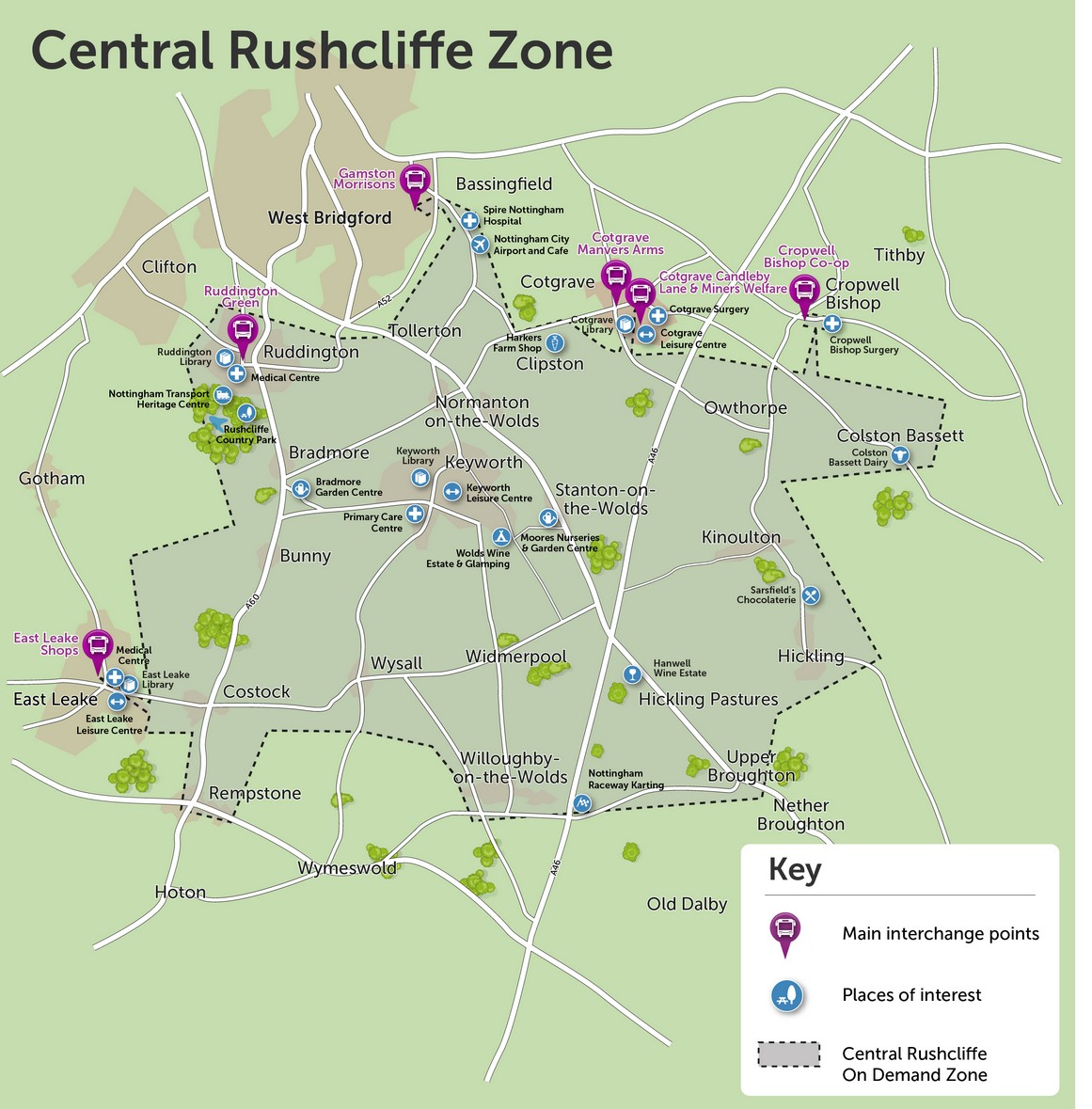
Political support
Pete highlights the political will that has enabled the NOD schemes to develop.
“For NCC, transport is a core value, a core objective and a core ambition,” he explains. “NCC members are wholly supportive. The original schemes tested the model, and it worked. In West Rushcliffe, local politicians wanted more public transport. The Council has not only used its core funding to support services but also Section 106 and Bus Service Improvement Plan (BSIP) funding to support Nottsbus On Demand rollout.
“But our plan is to aim for a more financially sustainable model. Achieving that is all about a reallocation of existing resources. A significant proportion of this has come from using resources redirected from what were existing Nottsbus Connect services. For example, the recently introduced Central Rushcliffe zone saw four Nottsbus Connect routes replaced by DRT.
“We have £4.1 million of NCC funding for all our supported services. We have political support and we are very careful to use that resource in the best way we can to ensure Value for Money. In turn, this current framework means we’re not being asked by NCC members to reduce costs but to contain them, driven by passenger growth. That means we keep looking to get bums on seats and drive down the cost per passenger figure with DRT. That’s working, with passenger use in rural areas increasing by 60% across all the DRT zones since we started this.”
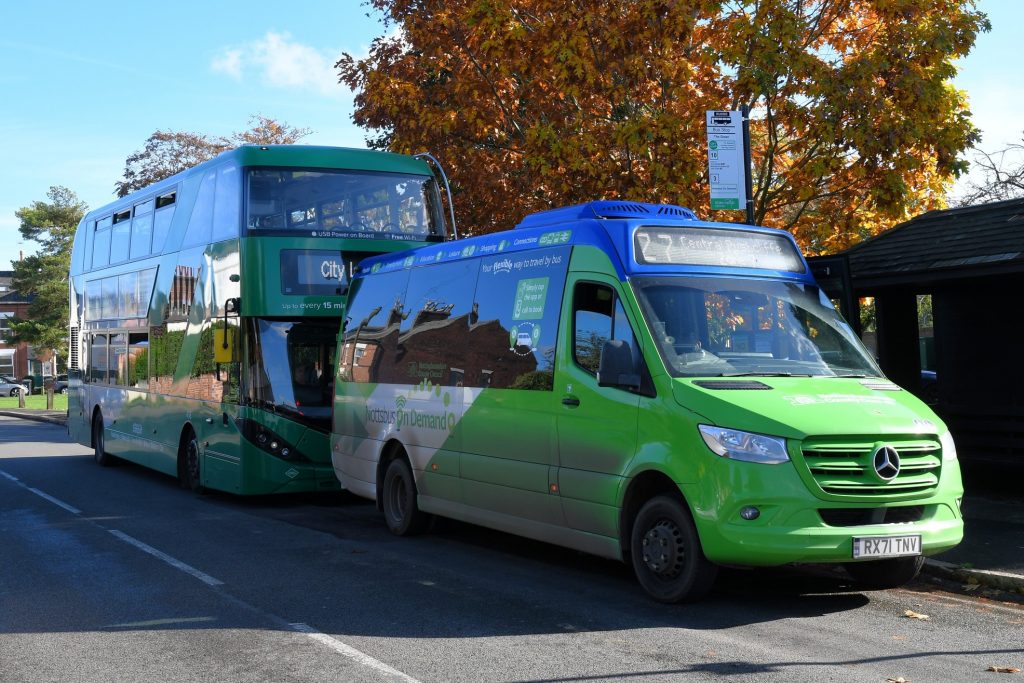
Younger demographic
“We’re also driven by innovation,” he continues. “We want the scheme to achieve what it says on the tin. We’re possibly fortunate that we’re not motivated by cost savings. We’re motivated by giving people a flexible public transport service that gives them the flexibility and independence to live their lives. We’re increasing accessibility. Sometimes I feel that people have a rather blinkered idea of what a DRT service should do. It’s not just taking older people to the doctors, or shopping. Our scheme provides a wide range of journey opportunities for all ages. Look at the evening schemes.
“In Mansfield and Newark the service is attracting a very different demographic. Getting younger people to take a bus that they might see as being for older people is changing perceptions. DRT is for any age. In both Mansfield and Newark, DRT is helping those town’s evening economies.”
The NOD network is serviced by three operators, all operating Mercedes-Benz Sprinters with 15-seat, EVM bodywork. Stagecoach East Midlands operates two buses on the South Ollerton zone during the day, then on the Mansfield and Newark evening zones. Loughborough-based Kinchbus, part of the Wellglade Group, operates two vehicles on the West Rushcliffe zone. Vehicles for the other zones are operated by NCC’s own fleet of five.
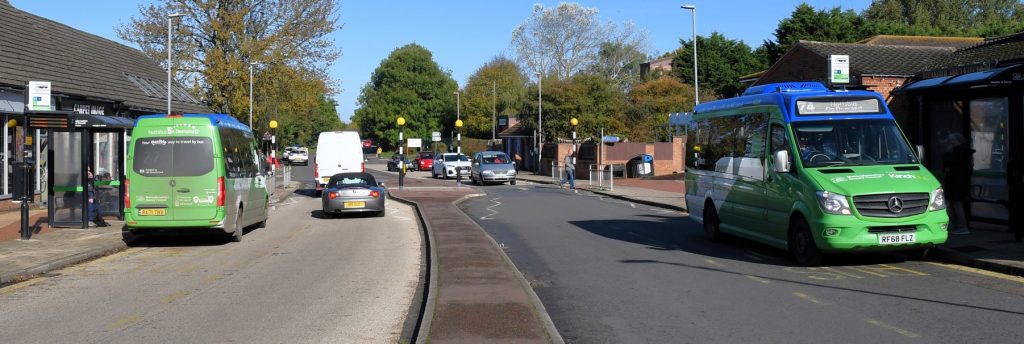
Getting people into work
Pete notes that although the modelling of each scheme is based on likely demand and on the results of earlier schemes, he can’t predict changing demand.
“For example, what might our pre-DRT passengers do,” he says. “How might their travel patterns change as they move from using a scheduled service, and having to travel at specific times, to being able to travel at pretty much any time they like. The new flexibility is good for them but means more challenges for us in meeting that demand. We’re fortunate that because of the way that we resource the schemes we can give each new zone a year, or two years, to establish itself. All of our schemes are doing well.”
Pete says a good example of growth is with the West Rushcliffe scheme.
“Getting people to work is one of NCC’s priorities,” he says. “NOD is playing a role in that. The West Rushcliffe zone includes East Midlands Parkway railway station and the nearby East Midlands Gateway Logistics Park. There are existing public transport links, but for rural, cross-county needs, NOD fills in the gaps. NCC, the politicians, and above all, our passengers, are really pleased.”
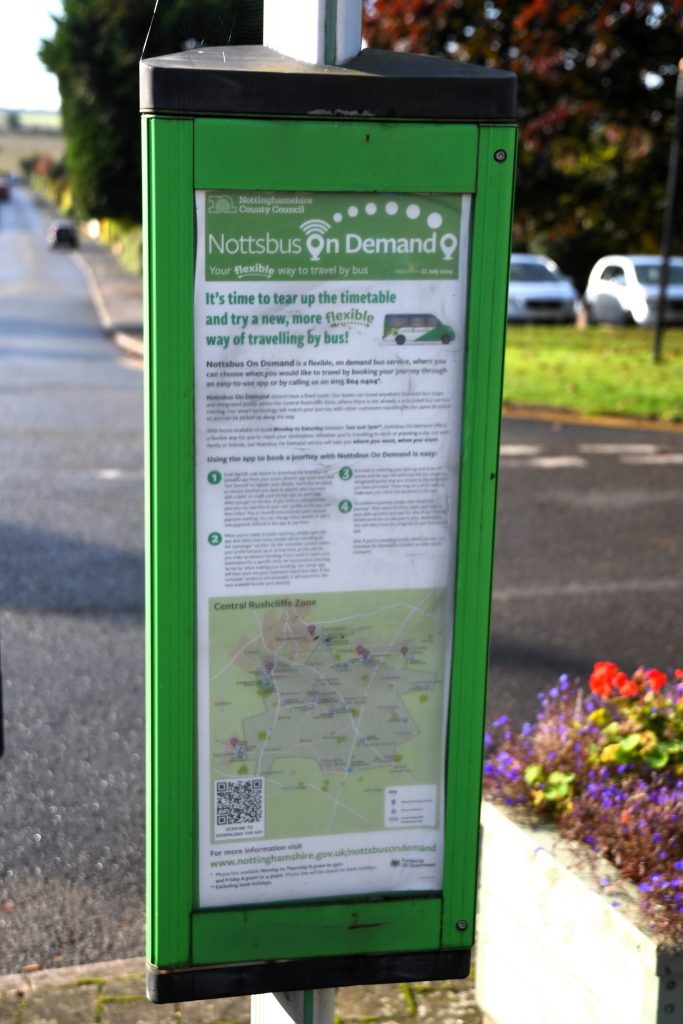
Two-year transition
But what about the future? Are there plans to expand NOD? Pete notes the change in the region’s political structure that is adding a new element to future planning.
“We now have a Mayor, Claire Ward, who is heading up the new East Midlands Combined County Authority,” he says. “That has brought four local transport authorities across the East Midlands together, namely the city and county councils of Nottingham and Derby. Claire was elected in May with part of her platform being to ‘get a grip of our transport systems’. There’s a two-year transition to a single transport team, bringing together the existing four teams. We’re already part of that transition process.
“Hopefully, DRT fits into the Mayor’s overall mission to deliver better public transport. There’s potential for a couple of other zones, but we need to see how the transition goes and what that means. That all needs to be in place by May 2026.”
Offering flexibility
“Every local authority is different of course,” he continues. “But when I see comments about buses running around empty, it makes me smile. They’re running around because they have somewhere to go and someone to pick up. I also smile when I see comments about DRT only working if a passenger’s travel needs fit in with others wanting to travel at the same time. I think you have to look at the broader picture.
“Our DRT scheme, and no doubt every other scheme in the country, is aiming to provide a service that offers people, usually living in areas where there’s no fixed public transport route, the flexibility to travel where and when they want to. Clearly that’s not always going to be possible, but the alternative is that they may not be able to travel at all. Yes, they could take a private taxi, but that might not be available at a given time either and it would be more expensive.
“DRT is there to provide an affordable, flexible and personal service that supports NCC’s aims and objectives. I’m really pleased with how NOD has developed. We’ve found a way to use our resources effectively to keep within budgets. Delivering the results to meet, and hopefully exceed, our members’ expectations is very pleasing.
“But while the team here in the office has led the development, it’s our team at the wheel of our buses that are at the forefront. They are making the difference to so many people, and that, at the end of the day, is what DRT and Nottsbus On Demand is all about.”





















